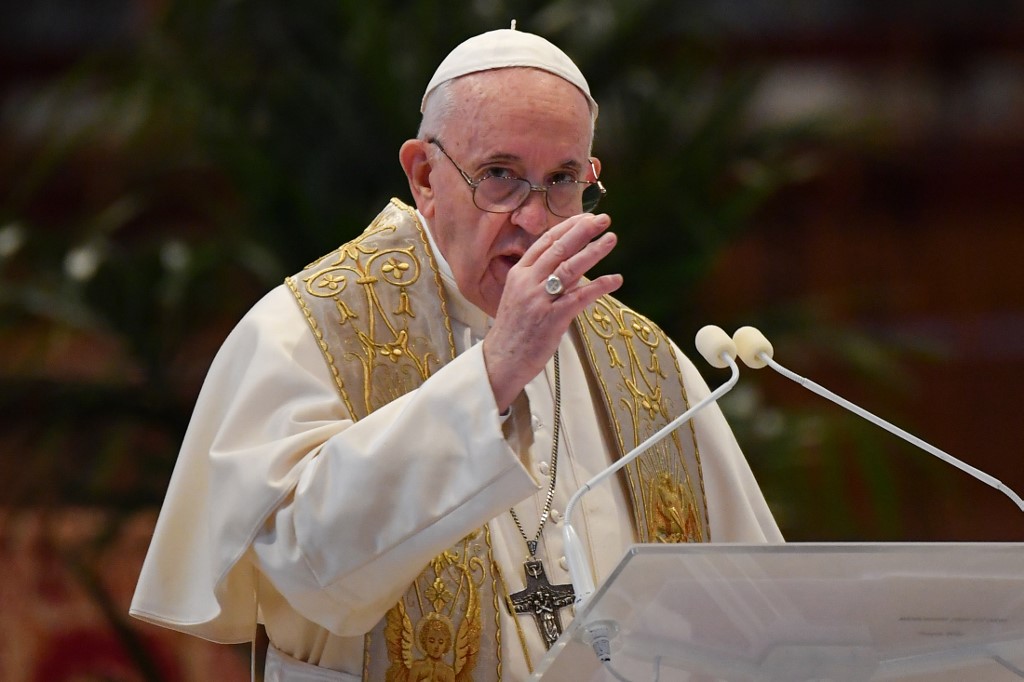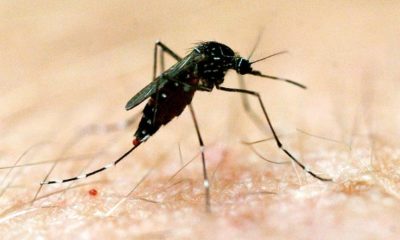International News
Australia Bans Chinese AI Chatbot DeepSeek Over Security Fears
Australia has banned the use of DeepSeek, a rapidly emerging Chinese AI chatbot, from all government devices, citing security and privacy risks.
The move, announced on Wednesday by government cyber security envoy Andrew Charlton, follows similar concerns raised by countries like South Korea, Italy, and France.
Charlton emphasized that the ban was not symbolic but a necessary step based on advice from security agencies.
READ ALSO: Supreme Court Upholds TikTok Ban Law, App Faces Potential Shutdown In U.S.
“We don’t want to expose government systems to these applications,” he told ABC News. The primary risks, according to Charlton, include potential exposure to malware and concerns that data uploaded to DeepSeek may not remain private.
The Department of Home Affairs issued a directive requiring all non-corporate Commonwealth entities to immediately identify and remove all instances of DeepSeek from government systems and mobile devices.
Secretary Stephanie Foster stated that the AI application posed an “unacceptable level of security risk” and mandated government agencies to prevent any further access, use, or installation of DeepSeek products.
This ban marks one of the most stringent actions taken against DeepSeek globally, underscoring Australia’s growing concerns about Chinese tech influence.
It follows past measures such as the 2018 ban on Huawei from Australia’s 5G network and the 2023 prohibition of TikTok on government devices.
China’s foreign ministry swiftly rejected Australia’s security concerns, condemning the “politicisation of economic, trade, and technological issues.”
In a statement, Beijing reiterated that it does not require companies to illegally collect or store data, pushing back against claims that DeepSeek’s data handling poses a national security threat.
Cybersecurity experts, however, support Australia’s caution. Dana McKay, a researcher from the Royal Melbourne Institute of Technology, pointed out that Chinese companies are legally obligated to store data in China, where it is subject to government inspection.
She also raised concerns about DeepSeek’s ability to collect keystroke data, which could potentially be used to track users and compromise security.
DeepSeek, developed by a China-based startup, has taken the AI industry by storm since its release last month, with claims that its R1 chatbot rivals top US AI models at a fraction of the cost.
However, accusations of reverse-engineering US technology and concerns over its data practices have triggered scrutiny from multiple governments.
With Australia joining the list of countries imposing restrictions on DeepSeek, the AI program is becoming the latest flashpoint in ongoing tech and trade tensions between China and Western nations.
While Australia and China recently saw a thaw in relations after a years-long trade war, the DeepSeek ban signals that cybersecurity and data privacy remain contentious issues.
International News
Russia Launches Deadliest Attack On Ukraine As Ceasefire Hopes Fade
In the early hours of Thursday, Kyiv was rocked by a devastating Russian missile and drone attack, described by Ukrainian officials as one of the most brutal strikes on the capital since Russia’s full-scale invasion began in 2022.
The Ukrainian air force reported that Russia unleashed 70 missiles and 145 drones overnight, targeting several cities across the country.
The barrage on Kyiv left at least nine people dead and over 60 wounded, including six children.
READ ALSO: Suspected Attack: Explosion Strikes Russian Consulate In France
Air raid sirens blared across the capital around 1:00 a.m., warning residents to seek shelter.
Moments later, loud explosions shattered the night, lighting up the sky and shaking buildings. “Phone calls can be heard from under the rubble — the search will continue until we are confident that we have found everyone,” said Interior Minister Igor Klymenko.
He confirmed that two children remained unaccounted for amid the chaos.
Rescue workers scrambled to pull survivors from under collapsed buildings. Fires broke out across multiple apartment blocks, and damage was reported in at least 13 locations.
In one tragic scene in the Sviatoshinsky district, a woman sat on a foldout chair beside a covered body, gently stroking the arm of a loved one killed in the strike.
Nearby, a bloodied woman clutched her dog as a first responder spoke calmly to her, trying to provide comfort amid the destruction.
Prime Minister Denys Shmygal condemned the assault in stark terms. “Cruise and ballistic missiles, drones, air bombs — Russia is cruelly and cynically firing missiles at Ukrainian cities, killing people while the world is making efforts to establish peace,” he wrote on social media.
The attack came just hours after Ukrainian President Volodymyr Zelensky reiterated his call for a ceasefire. “Stopping the killings is the number one task,” Zelensky stated online following a meeting between his aides and Western officials in London.
However, any momentum toward peace appeared to falter. Russian President Vladimir Putin has yet to respond to Zelensky’s offer to halt airstrikes on civilian areas and previously dismissed a joint U.S.-Ukrainian proposal for an unconditional ceasefire.
“Putin demonstrates through his actions, not words, that he does not respect any peace efforts and only wants to continue the war,” said Foreign Minister Andriy Sybiga. Echoing that sentiment, presidential aide Andriy Yermak declared, “Putin shows only a desire to kill.”
Former U.S. President Donald Trump, speaking hours before the attack, claimed a peace deal with Russia was close.
He blamed Zelensky for stalling negotiations by refusing to accept Moscow’s annexation of Crimea, stating that Ukraine’s position “will do nothing but prolong the ‘killing field’.”
Meanwhile, Russian forces expanded their offensive to other regions.
In Kharkiv, at least seven missiles struck a densely populated residential district, according to city mayor Igor Terekhov. Russia’s defense ministry also reported downing 87 Ukrainian drones, including 45 over Crimea.
Earlier this month, Russia’s campaign of aerial terror intensified. A missile strike on the city of Sumy killed at least 35 people, while another attack on Zelensky’s hometown, Kryvyi Rih, claimed 19 lives — nine of them children.
International News
Panic In Istanbul As 6.2-Magnitude Earthquake Hits Marmara Sea
Residents of Istanbul were jolted by a 6.2-magnitude earthquake on Wednesday, which struck the Marmara Sea near the city’s western fringes, prompting widespread concern but causing no immediate casualties.
The quake, which occurred at 12:49 p.m. local time (0949 GMT), originated in Silivri, according to Interior Minister Ali Yerlikaya.
“An earthquake of 6.2 magnitude occurred in Silivri, Marmara Sea, Istanbul,” he confirmed on X, formerly Twitter. Yerlikaya also noted that tremors were felt in nearby provinces.
READ ALSO: Massive 7.7 Magnitude Earthquake Rocks Myanmar, Shakes Southeast Asia
Following the initial tremor, Turkey’s disaster management authority, AFAD, reported three more earthquakes ranging from 4.4 to 4.9 in magnitude.
The seismic activity sent people fleeing onto the streets, with many seen anxiously checking their phones or making calls.
“I just felt earthquake, I’ve got to get out,” said a decorator who dashed out of a fourth-floor apartment near Galata Tower. He declined to give his name, visibly shaken by the experience.
Despite the intensity, there were no reports of injuries or building collapses in the city of approximately 16 million people.
“Until now, we have no information about any buildings collapsing,” the governor’s office stated, urging residents to avoid entering structures that may have sustained damage.
Reassuring citizens, the Istanbul municipality also confirmed, “No serious cases have been reported so far following the earthquake in Istanbul,” in a post on X.
Tremors from the quake were reportedly felt as far as Sofia, Bulgaria, according to AFP journalists in the capital.
Authorities continue to monitor the situation as aftershocks persist and damage assessments are conducted across the region.
International News
JUST IN: Vatican Discloses Cause Of Pope Francis’ Death

The Vatican has disclosed that Pope Francis died of a stroke, which caused a coma and irreversible heart failure, according to his official death certificate released on Monday.
The 88-year-old pontiff passed away on Monday morning, nearly a month after being discharged from hospital following treatment for double pneumonia.
In the statement released by the Holy See Press Office, the cause of death was identified as “a stroke, followed by coma and irreversible cardiocirculatory collapse.”
READ MORE: JUST IN: Vatican Mourns As Pope Francis Passes Away At 88
The certification was issued by Dr. Andrea Arcangeli, Director of the Directorate of Health and Hygiene of the Vatican City State.
The medical report also detailed the Pope’s history of health challenges, including “acute respiratory failure caused by multimicrobial bilateral pneumonia, multiple bronchiectases, high blood pressure, and Type II diabetes.”
His death was confirmed through electrocardiographic thanatography.
“I hereby declare,” wrote Dr. Arcangeli, “that the causes of death, to the best of my knowledge and judgment, are as stated above.”
Pope Francis, born Jorge Mario Bergoglio, became the 266th leader of the Roman Catholic Church in 2013 and was widely recognized for his efforts to modernize Church doctrine and promote global social justice.













